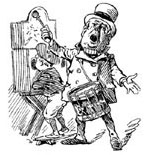
The U.S. Bishops’ Holy Day Havoc
ANOTHER ECCLESIASTICAL INCOHERENCE
The last time a pope tinkered with the calendar, it went well: the Gregorian Reform of 1582 realigned the calendar with astronomical reality. Subsequent messing with the calendar by America’s Catholic bishops has had a more baneful impact in terms of desynchronizing it from liturgical reality. Case in point: the muddle at the beginning of January 2023. If the U.S. bishops want to have another discussion about “coherence” — as they did last year with the Eucharist — they might want to re-examine their own havoc with holy days.
No doubt some official ecclesiastical types will insist that everything is fine and the only “havoc” comes from my criticism. In the wake of post-Traditionis Custodes liturgical-historical revisionism, I might even be accused of skating on the edge of anti-conciliar sentimentalism indicative of a spirit of rigid judgmentalism, oblivious to pastoral needs. Nevertheless, I’ll take my chances and ask those with eyes to see: Is the emperor buck naked?
January’s muddle exemplifies the incoherence of the U.S. bishops’ approach to holy days, which is driven by accommodation to secularism and imposed by legalistic clericalism masquerading as “pastoral care.”
January 1, the Solemnity of Mary, Mother of God, is a holy day of obligation in the United States in 2023 because it falls on a Sunday. It was not a holy day last year nor will it be next year because of the bishops’ 1992 Saturdays-and-Mondays-aren’t-holy-days-of-obligation-(in-most-cases) rule, which dispenses with the duty to attend Mass on the Assumption, All Saints’ Day, or January 1 if they fall on either a Saturday or Monday.
The bishops did not attempt to apply that “pastoral accommodation” to Christmas, which led to the paradox, last year and next, that December 25 is a holy day but January 1 — a week later — is not. It also does not apply to the Feast of the Immaculate Conception (Dec. 8), presumably because it is the national patronal feast (as if most Catholic Americans know that).
You May Also Enjoy
Into the hostile environment of the Archdiocese of San Francisco steps a bishop who leaves no doubt about where he stands on the burning issues facing the Church.
What the Church badly needs are leaders who are not afraid to stand in opposition to power, even if that means putting cash contributions in jeopardy.
When, on March 19, 1996, Bishop Fabian Bruskewitz of Lincoln, Nebraska, announced that Catholics in…

